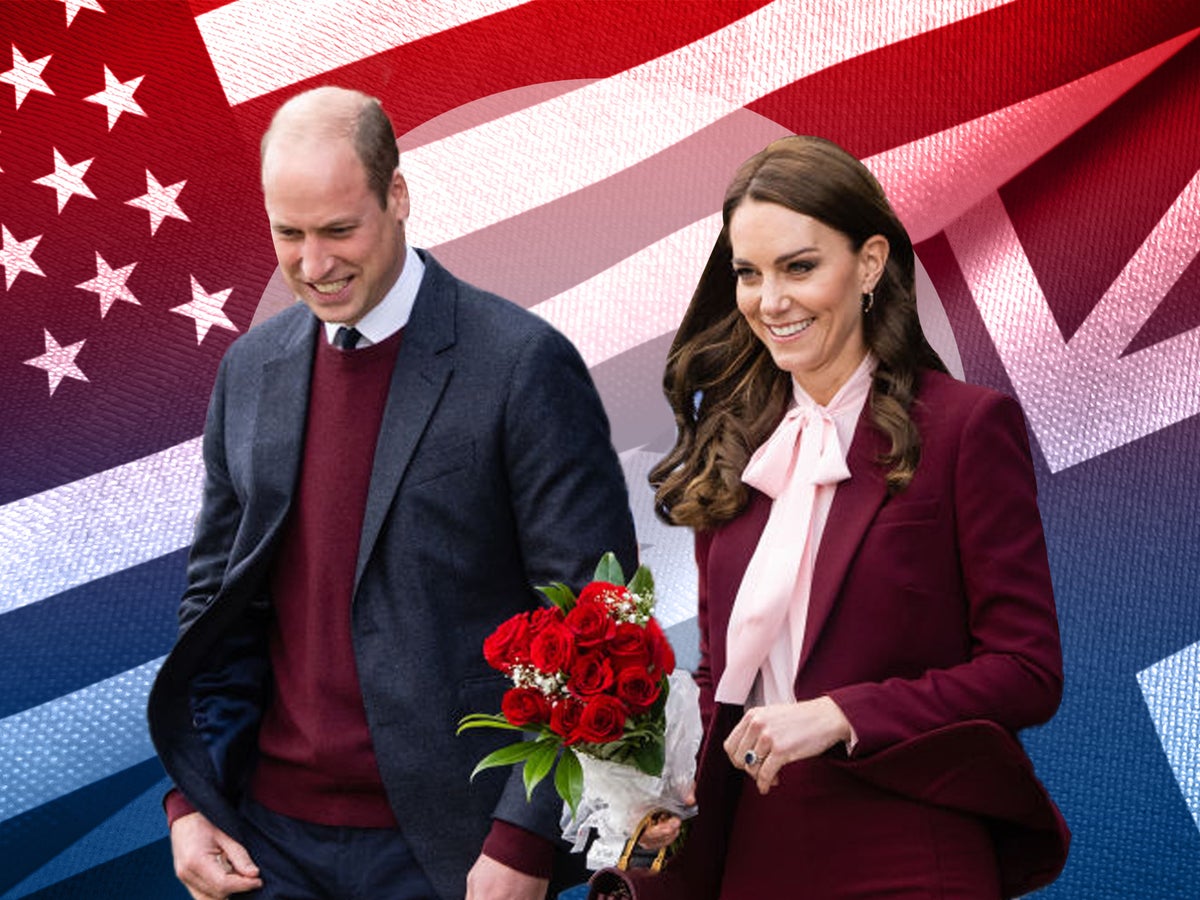
When Prince William and Kate Middleton touched down on American soil this week, it seemed their first visit to the United States as the newly-appointed Prince and Princess of Wales was to be one for the history books: a shining example of a modern monarchy focused on contemporary issues, like climate change.
All that came crashing down when a racism scandal erupted in Buckingham Palace just as the royal couple were making their way across the pond. Lady Susan Hussey, the late Queen Elizabeth II’s lady-in-waiting, stepped down from her honorary role after Ngozi Fulani of Sistah Space, Britain’s leading domestic abuse charity for Black women, recalled a “traumatising” encounter in which Lady Susan Hussey asked racially insensitive questions about her heritage.
Although Prince William condemned the remarks made by his godmother through a statement from his spokesperson, who said “racism has no place in society,” it didn’t stop William and Kate from sitting courtside at a Boston Celtics game that night. But, as the couple were shown on the giant screen at Boston’s TD Garden arena, boos and chants of “USA, USA” could be heard from the crowd.
Whether it was Bostonians reacting to the palace’s recent racism scandal, or simply harkening back to their city’s tea-filled history with the monarchy, an age-old debate has been ignited once again. Who cares more about the royals: Americans or Brits?
There’s no denying that Americans and Brits share a common history. Apart from speaking the same language – although the subtitles on my TV as I watch Love Island UK would disagree – the British royal family represents what could’ve been if we didn’t partake in a bloody war for independence all those years ago. Now, Americans look on at the royal family with curiosity, intrigue, and occasional reverence, almost like an image of what could’ve been.
Of course, the Disney-powered princess machine doesn’t help. Growing up, so many of us watched films and read fairy tales about princesses living in castles, only to realise that these realities actually do exist for those who were born into them. But, in America, where rags to riches stories are often reliant on one’s ability to perform labour, the royal family stands in direct opposition to the so-called American dream.
That doesn’t mean we can’t look at the royal family as entertainment. And if there’s anything to know about Americans, it’s that we live for the drama.
The US has had a long – and oftentimes unhealthy – history with celebrity culture. Before tabloids at grocery store check-out lines were telling us which former child star was busted on a DUI charge, Americans received their celebrity fix from the royal family, which has provided more than 1,000 years of drama. I mean, does the name Henry VIII ring a bell?
When King Edward VIII abdicated the throne in 1936 to marry American divorcée Wallis Simpson, Chicago’s The Daily Herald,The Boston Globe, and even The New Yorker covered the breaking news.
It’s no secret that Princess Diana was a media obsession in the UK, but tabloids and newspapers in the states had their own love affair with the “People’s Princess” too, with the royal having graced the cover of People magazine nearly 60 times. When Princess Diana married now-King Charles III in 1981, an estimated 17 million Americans tuned in for the royal wedding of the century – only to be toppled by Prince William and Kate Middleton’s 2011 wedding with 23 million viewers in the US, according to Neilsen. However, the number was far lower than the 33.2 million Americans who watched live coverage of the late princess’ funeral in 1997.
Diana’s love affair with the US wasn’t one-sided either, as it’s speculated she had her own plans of relocating to America. Now, her youngest son Prince Harry has followed in her footsteps, even joking that he’s “living the American dream” in California, where he relocated with his wife Meghan Markle and their two children, Archie and Lilibet.
Americans look at the royal family as an extension of its celebrity-obsessed culture, and with perhaps some of the lowest stakes possible. For Brits, the stakes aren’t as low.
Over the last year, British taxpayers paid £86.3m to the royal family, according to accounts for the Sovereign Grant released in June. Public opinion on abolishing the monarchy has swayed in recent years, with at least 41 per cent of young Brits aged 18 to 24 wishing to do away with the institution altogether – which may come as a surprise to some, seeing as lines to view the Queen lying in state at Westminster Hall stretched to some 250,000 people. After the Queen’s funeral, support for the monarchy increased, with up to 47 per cent of adults saying Britain would be worse off without a monarchy.
Much like how the England vs USA match at this year’s World Cup resulted in a tie, perhaps these two once-feuding nations are both equally invested in an entertaining, arguably outdated British royal family. Americans get their fix of drama every time a scandal rocks the royal family, and Brits struggle to envision what a world would look like without them.







